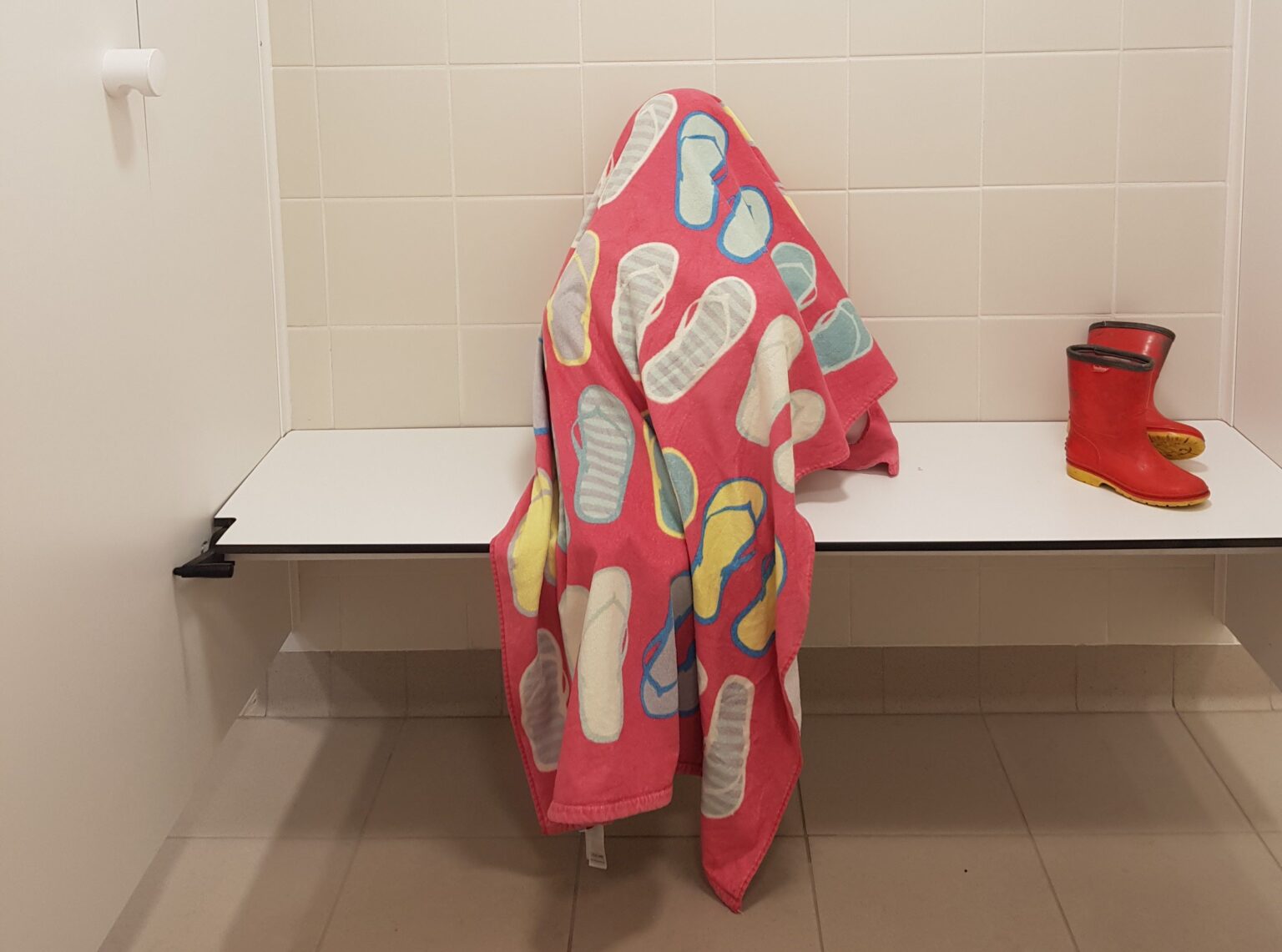Last week, I have not been so well – sick in bed – and the reason is… no, it’s not my 4-year old (step)granddaughter in the picture above. But she taught me a life lesson I won’t forget.
I had cleared my calendar for the week that she was here, to be sure that I wouldn’t have any work obligations that might conflict with our time together. Even if, by now, I’m a little out of practice, it didn’t take me long to cook up some playdough, bring out the paint, sit on the floor with her to play with dolls and do acrobatics. Apart from a few hours on one day, I totally dedicated my time to her. That’s how I am.
She loved the swimming pool. One afternoon we played in the water for three hours. We barely made it home and she fell straight asleep on the sofa. And because she loved it so much, we went again. We played dolphin. That is: I was the dolphin and she the rider. After an hour, I was ready to call it a day. She wasn’t. ‘Again!’ she exclaimed over and over again. Try to argue with a strong-willed girl, giddy with delight.
When we finally did get home, I was the one needing to lie down. The next day, I was ill.
Initially, I blamed the weather, a sick child we had encountered, covid I’d had a month before. But then, as I was reviewing the scenes from the week in my mind’s eye, feeling rather sorry for myself, a profound realization sank in: I had brought it upon myself by totally ignoring my boundaries.
Down to my core, I felt that this was not only about my physical boundaries. It was also my inability to say no to my little girl each time she wanted me to do something I actually didn’t want to do. I couldn’t refuse, because it made her so happy and we were bonding so deeply.
Yes. My We-mind. It just couldn’t resist bonding AND making someone happy. It is a beautiful thing. But does it automatically imply overruling oneself?
No.
We all know that trespassing one’s boundaries makes us feel bad. In fact, I often work on it with clients. And here I was, floored myself by an old pattern I learned at an age when saying no was met with disapproval and risked breaking a precious bond.
The silver lining of getting ill has been that I recognized the root of this harmful habit. I won’t do it again. Why it matters for you, is that I found another piece of the puzzle for my next book, which will be about how our We-mind and Me-mind are affected by what we learn as children.
After my aha-moment, I did a little research (yes, in bed) and came across professor Ellen Ernst Kossek, an expert on work-life boundaries. She found there are four styles in which we manage our boundaries between work and personal life. It made me realize my pattern isn’t unique to the personal setting. Here’s her model:
- The integrators amongst us constantly blend work and nonwork and experience lots of cross-role interruption. On the positive side, they have a can-do attitude and are available when needed. The downside is that the constant switching costs energy and focus. They risk feeling overloaded, exhausted and rushed.
- Separators keep work and nonwork separated in defined blocks of time, and focus on each role with few interruptions from the other. These people are reliable, focused and professional. The downside of this profile is a potential for rigidity, an inability to switch between roles or view crossover as enriching.
- Cyclers switch back and forth between cycles of high work-life integration followed by periods of separation. They are highly engaged and very flexible, but risk experiencing burnout, exhaustion, chaotic peaks and valleys, leading to slow recovery. They have limited buffers with a potential for overload and ball-dropping of other life roles during peaks.
- Role-firsters identify with their role either of work or of their personal life. They prioritize their assumed role whenever the other role(s) creep in and crossover might actually be useful. They can focus easily and do that one role well, leading to less work-life conflict. On the other hand, they may not fully develop their ‘whole self’. ‘Work-firsters’ can become workaholics, and family-firsters and other nonwork-firsters risk sacrificing their career.
I know what I am. Do you recognize yourself in any of these?
Sign up for my newsletter if you want to join the conversation about how we can better value ourselves and leverage what we bring to the table.

